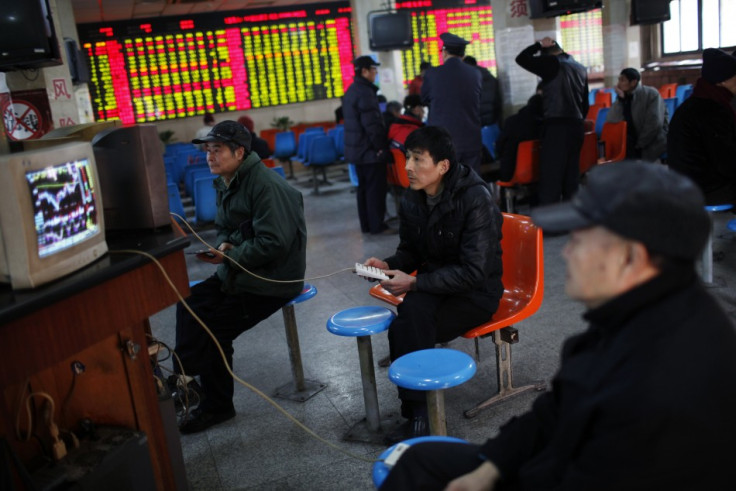Asian Markets Weekly Roundup: Downbeat Cues Put Investors Under Selling Pressure

Asian markets, barring Australia, ended the week lower. Investors blame Chinese growth concerns, the Bank of Japan (BoJ) letdown and Fed fears.
The markets opened on a slightly higher note on 10 June as the Japanese Nikkei surged supported by a rally on Wall Street on 7 June, when US government data showed that May nonfarm payrolls rose higher than forecast, and by revised Japanese first quarter growth data.
But BoJ jitters and concerns over China's economic growth trajectory forced markets outside Australia to open lower on Tuesday morning.
On Wednesday, markets continued the downward trend. The Japanese Nikkei dropped owing to the BoJ's reluctance to check the volatile domestic bond market, and following the selling of stocks on Wall Street where quantitative easing (QE) concerns prevailed.
Thursday was the worst day for Asian equities this year. The Japanese Nikkei tanked as Asian equities hit new 2013 lows, pulled down by the uncertainty over the US Federal Reserve's QE programme that pushed the US dollar lower against the Japanese yen.
Asian markets bounced back on Friday boosted by a rally on Wall Street following positive US labour market and retail sales data that suggested the world's leading economy was improving, albeit at a slower pace.
The Shanghai Composite dropped 4.8% in five days of trade, beginning 5 June, to 2,162.04. The market was closed on the first three days of this week for the Dragon Boat festival.
Consumer inflation in the world's second largest economy slowed down to 2.1%, a three-month low, while producer prices dropped to 2.9%, the lowest since September 2012, suggesting growth in China could weaken further in the second quarter of 2013.
The Nikkei fell 4.4% to 12,686.52 in the five days of trade beginning 10 June. The BoJ's reluctance to arrest the recent volatility in the Japanese bond markets weighed on the Nikkei. The BoJ's monetary policy statement on Tuesday let down the markets when it failed to mention possible measures to control the turbulent bond markets.
The Hang Seng ended 3.7% lower to 20,969.14 in the five days of trade beginning 7 June with weak Chinese economic data forcing the index lower. The market was closed on Wednesday for the Dragon Boat festival.
South Korea's Kospi ended 1.9% lower to 1,889.24 in the five days of trade beginning 10 June. Uncertainty rules over the fate of the re-opening of the Kaesong industrial complex closed down earlier this year. Talks between North Korea and South Korea, scheduled for 12 June, were put on hold after the two sides were unable to agree on the composition of their delegations.
Australia's S&P/ASX 200 inched up 0.25% to 4,791.80 in the five days of trade beginning 7 June, but gains were capped given the lower demand for Australian commodities in China. Australia is struggling to move away from mining-led growth. The market was closed on Monday for a public holiday.
Wall Street Down on QE Concerns
On Wall Street, stocks closed lower in the week ending 14 June, pulled down by the uncertainty that surrounds the Federal Reserve's QE programme. Fed chairman Ben Bernanke is due to speak on 19 June at the end of a two-day Fed meeting, and investors expect him to shed more light on the future pace of the Fed's $85bn a month bond-buying programme that has stimulated markets the world over for a while now.
The US economy is logging sluggish growth and investors believe it still needs government stimulus.
The action shifts to India early next week, with the Reserve Bank of India due to announce its interest rate decision. Wholesale price inflation in the south Asian country fell to a 3.5-year low in May, but a near-term interest rate cut from the central bank is unlikely, owing to the recent fall in the value of the rupee.
"The downdraft in INR is likely to have closed the window on rate cuts, at least for June," said Roland Randall, Asia Pacific Economist at ANZ Research.
Investors will be tracking a raft of economic data coming in from the US early next week. The world's leading economy is on the recovery path and CPI data, alongside residential and commercial construction activity data could influence the Fed's decision on the future of its bond-buying programme.
Data from the German ZEW Economic Sentiment Index, which gauges the six-month economic outlook, will shed light on the state of Europe's strongest economy on 18 June.
New Zealand will put out quarter-on-quarter GDP data on 19 June, forecast to grow 0.6% from 1.5% previously.
The UK will put out retail sales data on 20 June. The US will release jobless claims data as well as existing home sales data the same day. Canada will release CPI and retail sales data on 21 June.
© Copyright IBTimes 2024. All rights reserved.







